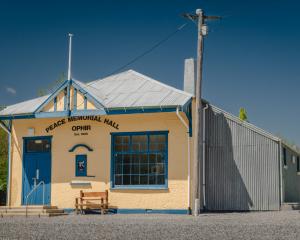
A gold medal from the Sydney Olympics. PHOTO: ODT FILES
They were coined the Games of the new millennium.
And what a way they were to begin the 21st century.
The 2000 Sydney Olympics have never lost their charm as one of the great Games, media still labelling them one of the most successful events on the world stage.
They were the closest to a home Games for the Kiwi crew, but sadly they did not live up to the hype of the occasion.
New Zealand won just four medals at the Games, and only one gold, which seems staggering when you think they returned home with 10 golds from Paris this year.
Rower Rob Waddell polished off the men's single sculls to be crowned the champion.
Windsurfers Barbara Kendall and Aaron McIntosh each won bronze, as did Mark Todd in the equestrian.
Winning Olympic medals is nothing to be frowned upon and those individuals' results are still impressive, but as a team, New Zealand were not where they expected.
The disappointment was the catalyst for a revamp of how the New Zealand Olympic Committee selected athletes, and a strict, and sometimes viewed as harsh, criteria process.
Twenty-five years on, that criteria is still in place.
Sydney produced some golden moments, especially from their home heroes.
A 17-year-old Ian Thorpe blistered home to win gold in the 4100m freestyle relay and set a world record alongside team-mates Michael Klim, Chris Fydler and Ashley Callus.
It was a win few saw coming, not even United States swimmer Gary Hall Jr, who Thorpe beat in the final length, who, ahead of the race, said his team would "smash them like guitars".
Fittingly, the Australian quartet whipped out an air guitar celebration after beating their rivals.

Who can forget Cathy Freeman’s performance in the 400m race? PHOTO:REUTERS
"This is a famous victory. A magnificent performance. What a legend, what a champion," Australian commentator Bruce McAvaney screamed as Freeman crossed the finish line.
It was a monumental moment for women's sport, and seeing the way the home crowd embraced the proud Aboriginal woman's victory was something special.
Women's sport, especially on the Olympic stage, has come on since then.
Kayaker Lisa Carrington is New Zealand's most successful Olympian, having won nine medals, eight gold, one bronze, across four Games, including three in Paris.
Kiwi women won eight of New Zealand's 10 golds and were involved in 15 of the record 20 podium finishes from Paris.
It is proof there have been big changes, and far more investment, in high performance sport.
The Olympics are still a must-watch every four years, as people are glued to their televisions to catch a glimpse of history.
But are they still viable? Tokyo proved how vital crowds are for not just the athletes, but the financial benefits that come back from the event.
They are becoming increasingly more expensive.
Bring on the next 25 years.












